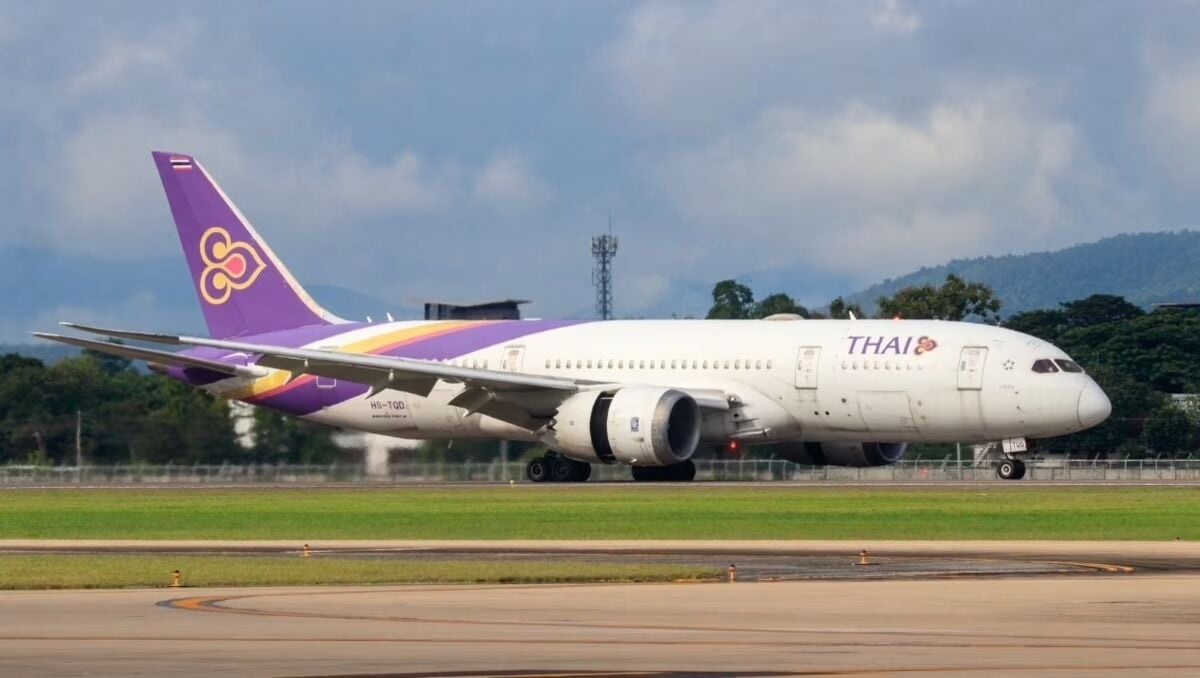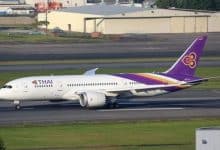Thai Airways plans rehabilitation exit by mid-2025, banks to benefit

Creditors of Thai Airways International (THAI), particularly Bangkok Bank (BBL) and Krungthai Bank (KTB), are set to benefit from the airline’s planned exit from its rehabilitation scheme by mid-2025. The banks are being provided with several options for debt repayment, according to analysts.
In recent reports submitted to the Stock Exchange of Thailand (SET) and the Securities and Exchange Commission, management for Thai Airways anticipates positive shareholder equity by February next year, with preparations to exit the rehabilitation plan slated for April.
Approval from the Central Bankruptcy Court for THAI’s exit from the rehabilitation plan is expected in May. Subsequently, the airline’s shares could resume trading on the SET by the end of June.
Chalie Kueyen, a banking analyst at KGI Securities (Thailand), noted that BBL and KTB are among 36 entities with outstanding debts amounting to 404 billion baht. These banks fall under the majority debtor group (Group 6), carrying around 31 billion baht in unsecured debt.
KGI believes both BBL and KTB have allocated provisions for their lending exposure since THAI’s restructuring plan was filed in 2020, said Chalie.
“We learned in our talks with THAI’s management that the debt to banks has been serviced regularly since the rehabilitation plan was established five years ago with an undisclosed lending rate.”
THAI’s exit strategy involves mandatory and voluntary conversion of debt into equity for certain creditors, including financial institutions, bondholders, the Ministry of Finance, and state enterprises, at a conversion rate of 2.54 baht per share. Creditors in Group 6 have multiple options for debt repayment, including converting debt into equity and extending the payment period by up to 15 years with an interest rate of 1.5%, reported Bangkok Post.
New shares incoming
Weerapat Wonk-Urai, a bank analyst at CGS International Securities, mentioned that THAI will undergo capital restructuring in the fourth quarter of this year as part of the court-ordered business rehabilitation plan. This will include issuing 9.8 billion new shares to support the debt-to-equity conversion.
“A share offering would be extended to THAI’s existing shareholders, employees, and investors through private placement. Following that, the par value will be reduced to eliminate accumulated losses.”
BBL and KTB have loan exposures to THAI amounting to 11.9 billion baht and 5.8 billion baht, respectively. BBL’s ownership in THAI is expected to increase from 0.4% in the second quarter of 2024 to 5.8% after the debt-to-equity conversion, Wonk-Urai said.
“We believe both banks have classified loans to THAI as non-performing loans (NPLs). If THAI’s loans are upgraded to performing loans, we anticipate BBL’s NPL ratio to decline from 3.64% in the second quarter of 2024 to 3.18%, with its NPL coverage ratio rising from 283% to 321%.”
KTB’s NPL ratio is projected to decrease from 3.85% to 3.59%, and its NPL coverage ratio is expected to increase from 181% to 192%, according to Wonk-Urai.
Latest Thailand News
Follow The Thaiger on Google News:


























